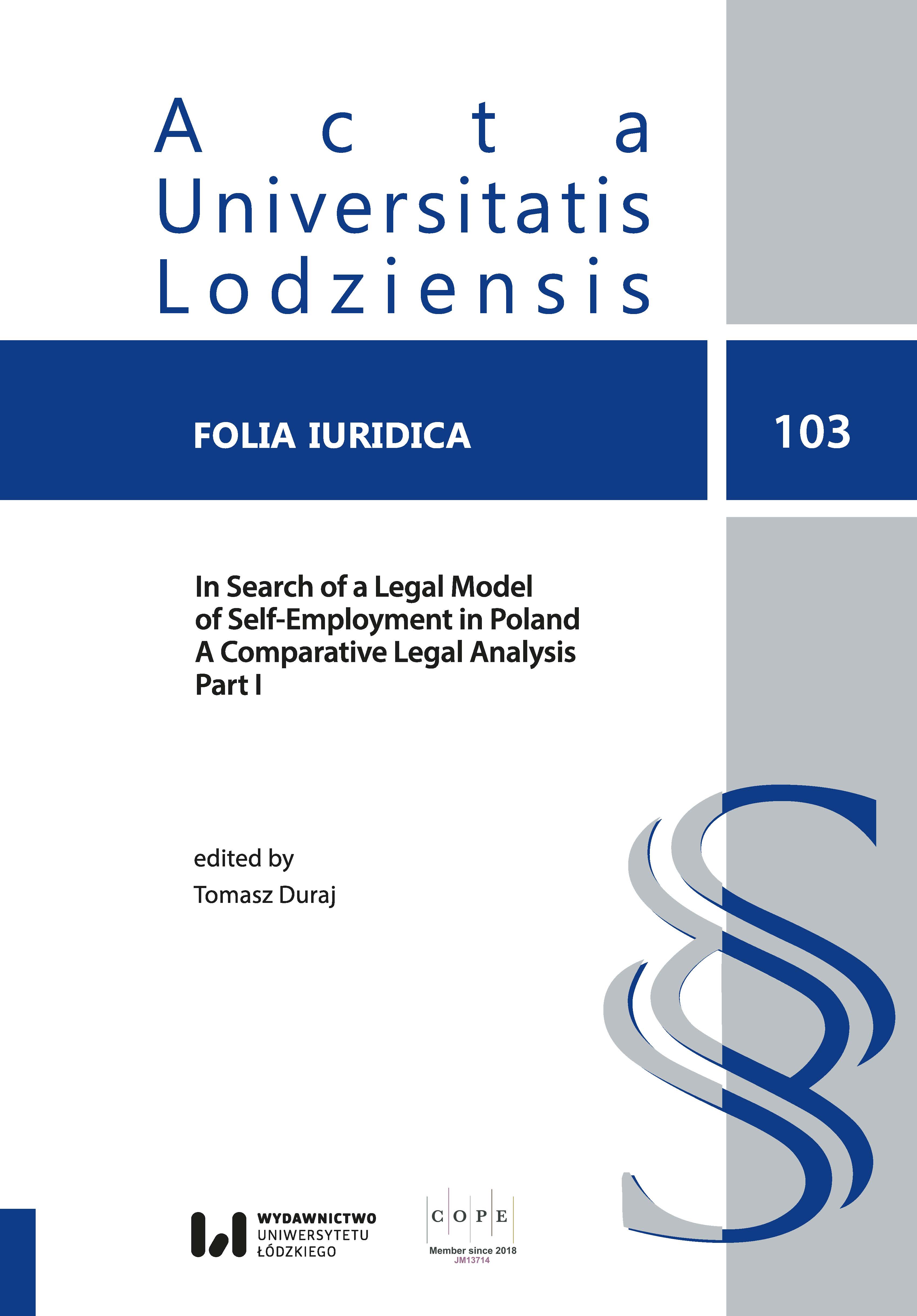Self-employment in Spanish law
Self-employment in Spanish law
Author(s): Aneta TycSubject(s): International Law, Applied Sociology, Labour and Social Security Law
Published by: Wydawnictwo Uniwersytetu Łódzkiego
Keywords: self-employment; employment relationship; Spanish law; economic dependence; bogus self-employment
Summary/Abstract: The objective of the article is to analyse legal regulations concerning self-employed activity in force in Spain. Spain is the first EU Member State to have adopted a separate law (on 11 July 2007) to comprehensively and systemically regulate the legal status of the self-employed. The Spanish 2007 LETA act aimed to sort out the situation of the self-employed and grant them additional rights. A new category of economically dependent self-employed persons was introduced and accorded special protection. The author discusses the concept and typology of self-employment, including classic, economically dependent, and bogus self-employment. In her view, the Spanish solution of regulating self-employment in a single piece of legislation appears attractive, but the criteria introduced in the law to determine the status of economically dependent self-employed do not adequately fulfil their role in practice. Their restrictive nature, far-reaching casuistry, and the criterion of economic dependence of the self-employed, who must receive at least 75 per cent of their income from a single counterparty, which is difficult to verify objectively and relatively easy to circumvent, result in a negligible number of self-employed persons benefiting from the protective guarantees provided by LETA.
Journal: Acta Universitatis Lodziensis. Folia Iuridica
- Issue Year: 2023
- Issue No: 103
- Page Range: 165-184
- Page Count: 20
- Language: English

